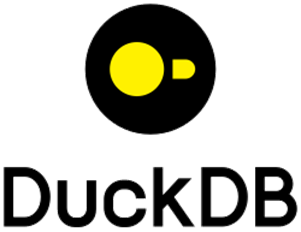
Looking for data? How about looking for the right source of data to answer your business questions and meet your project requirements?
When I need data, I look for the data steward. Data stewards are so knowledgeable and involved in so many aspects of data at organizations, I usually insist that a corporate data steward be involved with every project I work on.
Data steward roles and characteristics
Across many different organizations, data stewards have a number of roles and characteristics in common. They often:
- Use all the data governance processes. The data steward is responsible for using all the governance processes to implement projects. This includes the quality and content of all data elements and entities.
- Define data. The data steward will incorporate metadata to include definitions (business and technical) of data elements and entities. The data steward is also proficient at using any organizational metadata tool and/or repository.
- Set policies and guidelines. The data steward creates policies and guidelines and ensures compliance with any corporate regulatory requirements.
- Ensure accurate data models. The data steward makes sure that relationships, data types and definitions meet enterprise standards and are accurate for every project. The data steward will create definitions (business and technical) for every entity and attribute for the data model by interviewing stakeholders of the project.
- Capture business rules. The data steward will capture any business rules about the data (and relationships), and document this according to corporate standards and policies.
- Determine data ownership. The data steward will assist in determining ownership of corporate data. Data ownership can become an obstacle for projects, so this effort is needed to keep the project moving.
- Know access and security processes. The data steward knows the procedures for gaining access to the correct data to answer all those business questions. Data stewards also know who to talk to about security of the data – or in some cases they have already documented it.
- Support master data management efforts. The data steward is aware, and usually part of, any corporate master data management initiative.
Saving time with data stewards
Even if you just look at the list above, it should be clear why the data steward has such an important role for all of an organization's data projects. While their tasks may seem cumbersome, they're crucial to every project's success.
I've seen cases where data stewards became a bit of a bottleneck for a project. But in looking deeper, I found that they were not included upfront on the project, nor were they given access to all the information (and the people) they needed to complete their tasks quickly.
As a rule of thumb for estimates: If the data steward is not included in the project until it’s time to review the data model, you will probably lose some time. That's why I include them upfront in all of my projects. I make sure a specific data steward is assigned to and involved in the project from the start. If your organization has a shortage of data stewards, consider contracting someone who has the required experience for your project.
In my opinion, data stewards are worth their weight in gold. Should they get better recognition? Of course. Many projects have been successfully implemented according to corporate standards due in large part to a data steward’s knowledge of corporate data policies and data stores. Some of those data stewards have been around the company for a long time. They know where the data is, the quality of the data, and how to get access to it.
For success with your next project – make sure there's a data steward involved from the start.
Download SAS Data Management: Better Data Is the Foundation for Better Decisions






2 Comments
The roles of data stewards are most times just included in other people's roles in companies. I have always felt that their role may be of most value to large companies that have a lot of data exchanging hands often – this data is important for crucial decision making and gaining an edge in the market. It may be time to start including them even in the small firms.
Thanks for the comment, Laureen. The author, Joyce, had technical issues and was unable to respond directly – so I'll share her thoughts below:
In my opinion, you're correct that the role of the data steward is vital for a large company. However, the activities/tasks are still required for small companies. So, who does these tasks? From my experience, it is usually the data architect or a database administrator/data modeler. As a company requires more complex data to work with to gain an edge in the market, the role of the data steward will emerge.